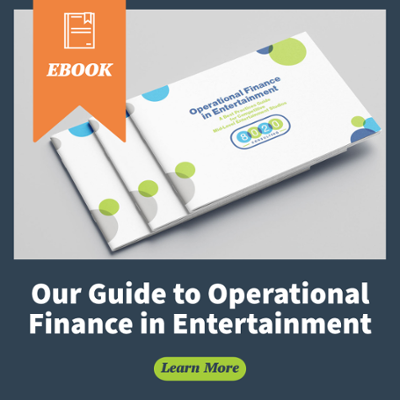
Managing the rights related to its proprietary content is core in every entertainment company. With technology, more media formats and platforms exist than ever before. Contracts are also more complicated and multi-layered than they have historically been. Managing content contracts across all media platforms has become extremely challenging and complicated. Today’s companies have multiple internal systems (e.g., ERPs, BI Tools, Supply Chain Systems, etc.) that must integrate and create synergy across the board to achieve increased accuracy and efficiency. On top of these systems, an entertainment company also needs a system that can create and streamline workflows within the company and with external parties enabling automation and tracking. This is where Rights Management Systems come into play.
What Makes for Good Rights Management Systems
A Rights Management System (RMS) is key to an entertainment company’s abilities to address the challenges and needs detailed above. Here are some of the key benefits of a good RMS:
System Integration and Interoperability
A good RMS integrates with other existing systems across multiple business functions (Accounting/Finance, Operations, Legal, Marketing) with minimal manual intervention needed. APIs can be maximized to every extent possible.
Data Integrity and Portability
In best-practice setups, an RMS houses all the relevant data within an organization and serves to be the “single source of truth” (SSOT). This reduces the risk of having multiple versions of the same data set, which can lead to inaccuracy within the organization. All users of the data source the one official data set and work off of that.
A good RMS not only serves as the SSOT, but also makes it relatively easy to get information in and out. Managing one data set in terms of structure, format, accuracy, etc. – as opposed to multiple silos of data, across systems – is much simpler and time efficient.
Supply Chain
An RMS allows integration with the supply chain/distribution system. That allows it to automatically send orders to the supply chain system for automated delivery to the customer/platform.
Integration of Participations and Residuals
Another benefit is improved management of participations and residuals via consolidation of information in the RMS and automation of this process as much as is feasible, as well as calculation of participations and residuals (if desired).
Sales Avails
An RMS system empowers the Sales team to sell more content by providing available content that is “sellable” in real time. The RMS provides the listing of titles that can be sold by content type (e.g., movie, TV series), genre, territory, media type, etc., in real time. The less time the sales team spends on sourcing and curating available content, the more time it has to actively sell content.
Automation
An RMS is an automated solution that will connect various data sets automatically, consolidate the data and allow the end user to access all the information in one place using a single software solution. Automation of processes is a significant benefit as the RMS can replace human capital even as scale of operations increase. The goal is to have a system that still works “while everyone is sleeping.”
Mapping of Processes and Procedures
An RMS allows you to map how business processes and information move through the company and how content (and its Rights data) moves through the organization from Product (Movie Title/Episode) Inception through Product Sales. You can look for BPI opportunities that can be achieved with the RMS.
Increased Accuracy & Timeliness
An RMS reduces the risk of errors created by manual entries or manual manipulation of data. It also offers the ability to analyze actual results with a more robust reporting system will allow for a timelier monthly close. Real-time results will allow users to make decisions faster.
Higher Level of Transparency
Having one integrated system will provide key metrics and financial results to be shared with all groups simultaneously.
Improved Reporting
Use of the RMS will allow for quick and easy access to custom reports. Automated dashboards for executive reporting can also be set up to auto run/populate.
Scalability
The system will be able to support the company’s growth without impacting performance or accuracy. In addition, if necessary, the modular nature of an RMS will allow the company to customize the solution in order to add on functionality, while retaining the original functionality.
Rights Management Systems Connect Departments
In conclusion, an RMS is the backbone of an entertainment company and creates synergy across departments/functions. The RMS connects all the departments in terms of data, processes, systems and people in order to have the entire organization function as one unified team.
There are a few RMS solutions in the market today, but only a couple serve all the purposes highlighted above. From hands-on experience, Rightsline Software is the best system solution currently available. 8020 Consulting has vast experience in the end-to-end implementation of Rightsline Software and has worked with several entertainment companies to achieve success. You can learn more in our entertainment finance services sheet.
We also offer a guide for studios looking to be more competitive through operational finance. You can download it here:
About the Author
Vikram possesses 17 years of experience focused in Financial Planning and Analysis across a variety of industries such as Entertainment, IT Communications, Banking, Food and Beverage, Investment Consulting, Retail, Publishing, Aircraft Distribution, and Real Estate. Vikram’s core competencies include managing finance teams and operations (Supply Chain/Inventory Management, Cost Accounting), conceptualizing and leading budgeting and forecasting processes relating to the P&L, Capital Planning, Balance Sheet and Cash Flow analysis for both mid-sized and Fortune 1000 Companies. Vikram has project managed and led several system implementations such as Rightsline, Anaplan, Hyperion Essbase, and TM1 Cognos. Vikram attended Willamette University (Oregon) where he received his MBA specializing in Finance. He also holds a Bachelor’s degree in Finance and Accounting from Christ College in Bangalore and a Master’s degree in Finance and Accounting from Bangalore University.
Image Credit:
- Photo by Daniil Vnoutchkov on Unsplash




